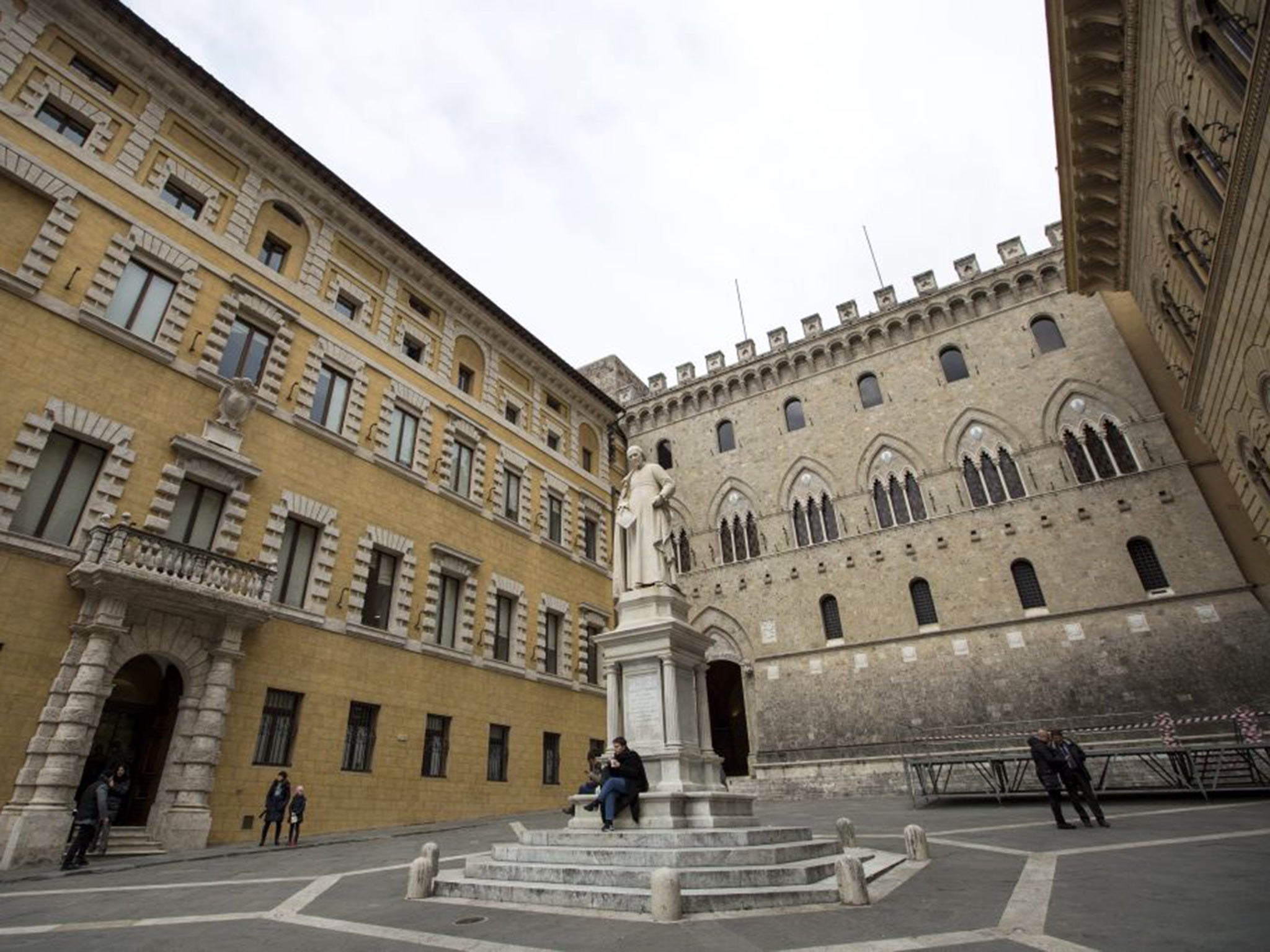Italy set to nationalise the world's oldest bank, Banca Monte dei Pashci di Siena
The organisation was founded in 1472 to provide charitable loans to the 'poor or miserable'

Your support helps us to tell the story
From reproductive rights to climate change to Big Tech, The Independent is on the ground when the story is developing. Whether it's investigating the financials of Elon Musk's pro-Trump PAC or producing our latest documentary, 'The A Word', which shines a light on the American women fighting for reproductive rights, we know how important it is to parse out the facts from the messaging.
At such a critical moment in US history, we need reporters on the ground. Your donation allows us to keep sending journalists to speak to both sides of the story.
The Independent is trusted by Americans across the entire political spectrum. And unlike many other quality news outlets, we choose not to lock Americans out of our reporting and analysis with paywalls. We believe quality journalism should be available to everyone, paid for by those who can afford it.
Your support makes all the difference.Italy is set to nationalise Banca Monte dei Pashci di Siena, the world’s oldest bank.
The organisation, founded in 1472, currently has five million customers but is weighed down by €360bn (£305bn) of bad debts.
Italy’s third largest lender was the worst performer in annual stress tests on 51 major lenders across the EU.
After the European Central Bank (ECB) refused to give the organisation any more time to secure private funding, the Italian Government felt there was no option left but to intervene.
The value of shares for the bank plummeted 16 per cent before trading was suspended and junior bonds issued by the organisation fell by half within minutes.
“The ECB is committing a grave error. It is unacceptable,” said Antonio Damiani, head of the banking union CGIL, the Telegraph reported.
“There must now be an immediate public rescue to secure Monte Paschi and head off any systemic risk for banks in trouble. This is a matter of urgent national interest,” Mr Damiani added.
There has been dismay at the ECB's decision not to provide a temporary stop-gap solution for the bank, particularly given the political crisis currently facing the nation following the resignation of Prime Minister Matteo Renzi.
“The decision is very strange. They are giving the impression that they want blood on the floor, perhaps by forcing a resolution of the bank to set a precedent,” said Lorenzo Codogno, ex-chief economist of the Italian treasury, according to the Telegraph.
“There is a risk that there could be panic and a chain-reaction if investors start asking who is going to be the next victim."
Join our commenting forum
Join thought-provoking conversations, follow other Independent readers and see their replies
Comments